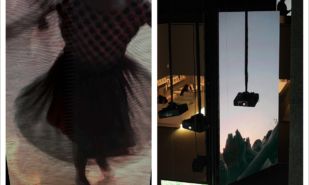On 26 March 2026, a chapel with burning candles was lit in the main lobby of La Scala in Milan so that everyone could pay their tributes to one of the greatest pianists of our times – Maurizio Pollini. Pollini passed away on 24 March 2024, two and a half months ago he had his 82nd birthday. Despite his apparent frailty, respiratory and cardiac problems, as well as difficulties with musical memory (during his concerts in 2023 Pollini began to read scores to perform works by Chopin and Schoenberg), the pianist continued his career up until his death, giving recitals at some of the world’s most important venues (Carnegie Hall, Berliner Philharmonie, London’s Royal Festival Hall, Milan’s La Scala). In February 2023 he gave his last recital, and in June 2023 he gave a concert in London where he had already shown visible signs of frailty.
The great Italian who played Chopin: Maurizio Pollini passed away on 24 March 2024
| Author | |
|---|---|
| Category | Columnists, Culture, Lifestyle, People, Town |
| Date | March 27 2024 |
| Reading Time | 3 min. |
The great Italian who played Chopin: Maurizio Pollini passed away on 24 March 2024
La Scala’s Intendant Dominique Meyer and its Music Director Riccardo Chailly, the orchestra and all opera staff mourn today with Pollini’s wife, pianist Marilisa Marzotto, and their son, pianist and composer Daniele Pollini. Pollini has appeared on the stage of La Scala for the unimaginable 168 times, starting with his debut in October 1958 and ending with his last performance in February 2023. He had also served on the jury of various competitions, met with students, and participated in conferences. The son of architect Gino Pollini, a pupil of Carlo Lonati and Carlo Vidusso, Pollini had an early taste of success and was internationally recognised as a young talent who promised to outshine the greatest musicians in the world. Thus, in 1957 and 1958 he won the second prize at the International Music Competition in Geneva, and after graduating from the Milan Conservatory, in 1960, when he was only 18, he had an astounding win at the International Chopin Piano Competition in Warsaw. Arthur Rubinstein’s historic statement about the young man’s appearance was the following: “He is already playing better than any of us”. Despite this success, he continued to hone his skills under the guidance of the Italian pianist Arturo Benedetti Michelangeli (Pollini’s wife was also part of the cohort of Michelangeli’s students).
His favourite composers were Chopin, Debussy, Beethoven and Schumann, as well as Bach, for whose 300th anniversary Pollini performed the first volume of the Well-Tempered Clavier in 1985. He was also taking interest in the composers of the 20th century, technically not the easiest ones – in this case the performance required advanced skills in performance and an understanding of the new techniques of composing. Alongside Chopin, Pollini performed works by Pierre Boulez, Luigi Nono, Luciano Berio and Karlheinz Stockhausen. In addition to his concert activities, Pollini recorded extensively with the Deutsche Grammophon label – he collaborated with it for more than 30 years throughout his life. His recordings are legendary, including a recording of all of Beethoven’s Piano Concertos with the Berlin Philharmonic and Claudio Abbado (1987), Prokofiev’s Seventh Sonata and fragments of Stravinsky’s Petrushka (1971), Beethoven’s Diabelli Variations (Diapason d’or prize), and Chopin’s Nocturnes. For the last recording Pollini won a Grammy for Best Instrumental Soloist Performance in 2007. In 2002 Deutsche Grammophon released an anniversary collection of 13 CDs for Pollini’s 60th birthday. Apart from the Grammy Award in 2007, the musician was also honoured with the Ernst von Siemens Prize, unofficially known as the Musicians’ Nobel Prize, in 1996, as well as the Life for Music Award in Venice in 1999.
Up until last year, British connoisseurs of the pianist’s work had the opportunity to enjoy his concerts live. The musician had grouped his repertoire into concert series. Thus, The Pollini Project, a series of concerts in which he juxtaposed works from the 18th and 19th centuries with 20th century composers began with a performance at the Salzburg Festival in 1995, while another series, Perspectives: Maurizio Pollini were played at Carnegie Hall in 2000-2001. Pollini also travelled twice a year to London’s Royal Festival Hall, where he took part in the International Piano Series programme. In recent years Pollini has appeared mainly in recitals, performing Debussy, Chopin, Beethoven, Schumann, Schoenberg and Boulez. At the peak of his career, however, Pollini collaborated with conductors such as Daniel Barenboim, Riccardo Muti, Pierre Boulez, Zubin Mehta, Riccardo Chailly, Carlo Maria Giulini and, of course, Claudio Abbado, with whom he had performed since 1969.
Pollini’s performances in London were always something special and unique. He seemed to immerse himself in the world of the music, reaching the level of introspection sometimes difficult to bear and taking the audiences with him. Despite some critics’ comments mentioning that his virtuoso technique lacked passion, Pollini had the ability to convey the movement of the music and its core foundations, creating a vast canvas where each piece sounded like a brilliant pearl. With his full immersion into the programme (the maestro seemed not to notice the long applause after each number in the programme) and his attunement to the essence of the musical nature of each composer, from Chopin to Boulez, he created music of crystal clarity and precision. His technique was particularly striking when performing Chopin’s Etudes and works from the late 20th century. Undoubtedly, the death of this music giant is a great loss not only for La Scala and Italian music lovers, but also for the whole world. We can savour the maestro’s playing on his magnificent recordings, as all CDs and digital versions of the pianist’s recordings are available on major music services.
Photo courtesy of Deutsche Grammophon




